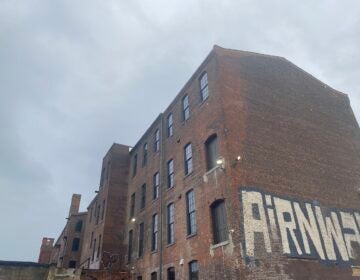April 4: Target joins Yards | Wolf: no jobs, no tax break | SEPTA police body cameras

Target will be joining Yards Brewing Co. and the Philadelphia Department of Records and Archives at the former Destination Maternity headquarters at Fifth and Spring Garden Streets, Jacob Adelman reports. This marks 100% occupancy for the highly visible property and would be Target’s biggest Center City (adjacent) mid-box retail store yet, featuring amenities that urban dwellers seek, such as a fresh produce section and a CVS pharmacy.
Governor Tom Wolf wants the state Department of Community and Economic Development (DCED) to consider clawing back tax breaks from companies that didn’t fulfill their promises for local job creation, NewsWorks’ Katie Colaneri reports. Wolf proposes, instead, using state grants to fund an apprentice program tied to the home healthcare, early childhood education, and nursing industries, and which target recent high school graduates or those who are changing fields.
The first six months of SEPTA’s body camera program has demonstrated “some great positives,” according SEPTA Police Chief Thomas Nestel III. NewsWorks’ Aaron Moselle covers the internal audit released by SEPTA on Monday, which revealed that complaints against SEPTA police decreased 25 percent, officer injuries decreased by 30 percent, and suspect injuries by 20 percent. While the Fraternal Order of Transit Police in Philadelphia and SEPTA Citizen Advisory Committee has not yet provided comments on the audit’s findings, SEPTA plans to make the program permanent.
What the history behind the curious, two-story Irani House at 3rd Street and Willing’s Alley? Hidden City’s GroJLart over the lost built history of the property, which has been demolished for redevelopment over several lifecycles, going from a “Colonial-era mansion, to Italianate office tower for the Pennsylvania Railroad, to a gas station, a playground, and, lastly, a two-story block of restrained Postmodernism.”
How would President Trump’s goals to streamline banking regulations affect neighborhoods and cities? Econsult’s Lee Huang, contributing to Next City, discusses how the demise of Dodd-Frank affects the public’s access to information that allows communities to hold banks accountable and transparent about their lending practices. Using publicly available data, Econsult recently conducted a national banking analysis, mapping findings that highlighted the disparities in banking among lower-income and upper-income neighborhoods, and between communities of color and other communities when it comes to branch access, mortgage application denial rates, and home loan penetration.
WHYY is your source for fact-based, in-depth journalism and information. As a nonprofit organization, we rely on financial support from readers like you. Please give today.







